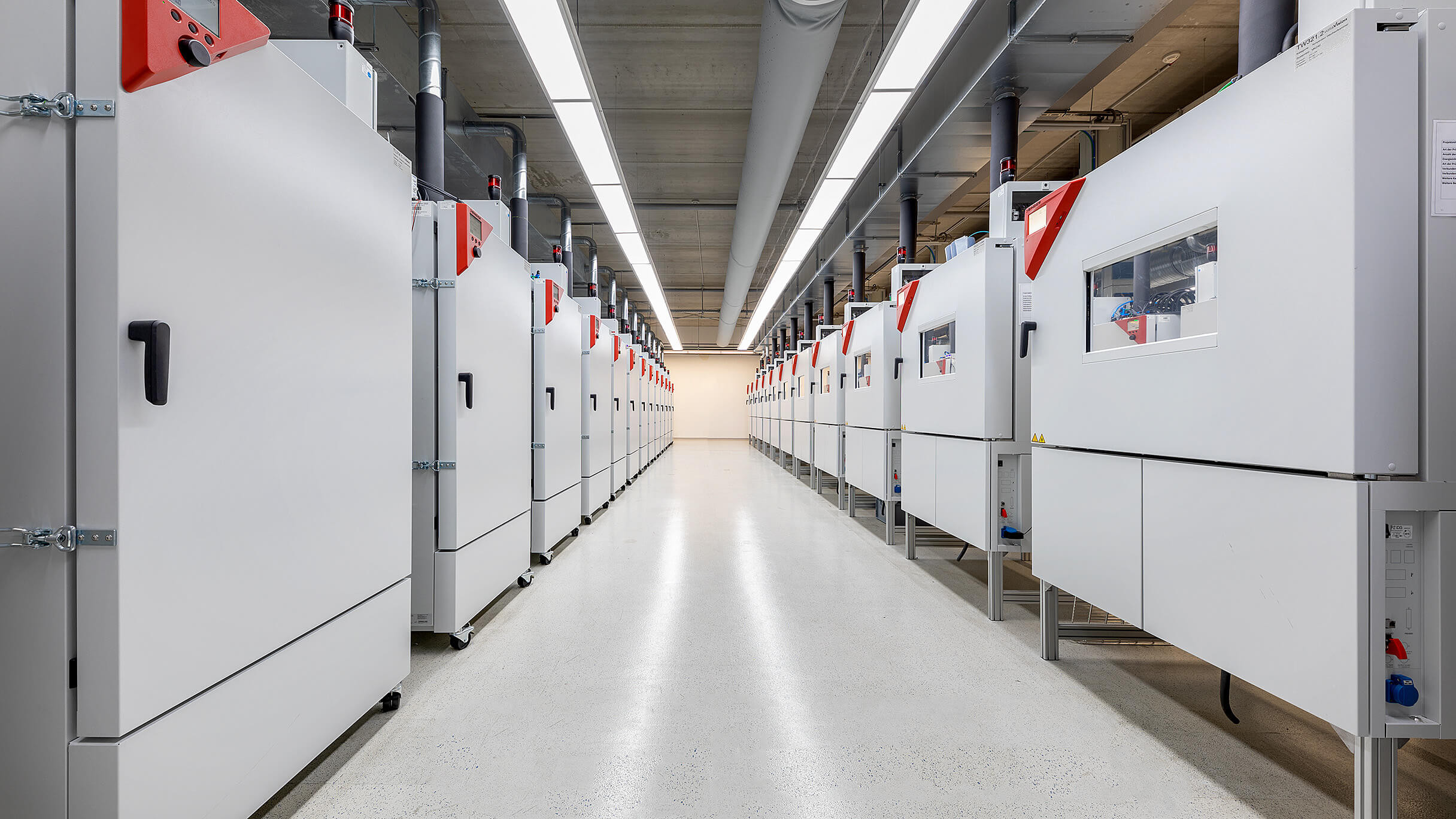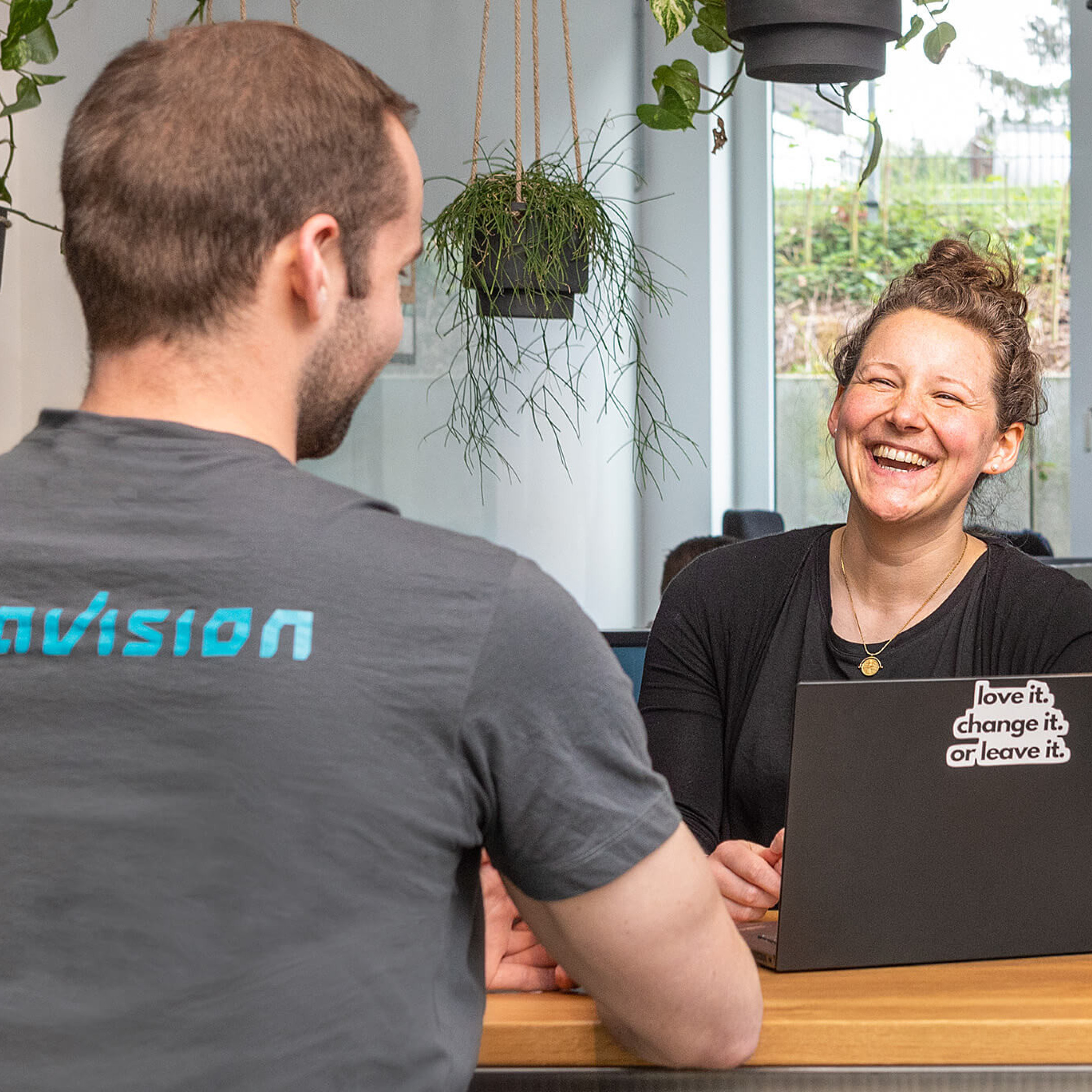Fraunhofer IEG and Voltavision launch globally unique geothermal project in Bochum for sustainable cooling in industry

Innovative underground cooling storage tank with intelligent control system to reduce energy consumption for cooling by 70 to 90 %.
Cooling systems are essential for keeping buildings and technical systems operational, especially on hot summer days. In Germany, such systems account for around 14% of total electricity consumption. At the same time, sufficient natural cooling remains unused in winter and at night. The “MissEllyDEMO” project is dedicated to this potential and is being implemented by the Fraunhofer Research Institution for Energy Infrastructures and Geothermal Energy IEG together with idea provider and practice partner Voltavision, a leading testing specialist for high-voltage batteries.
Funded by the Federal Ministry for Economic Affairs and Climate Protection (BMKW) with around 2.8 million euros*, a geothermal probe cold storage system is being built on Voltavision's Bochum premises which, thanks to the intelligent use of seasonal and diurnal temperature differences, will reduce the energy-intensive use of compression cooling to a minimum and represent a sustainable and cost-saving alternative. The energy simulation of the completed feasibility study “MissyElly” shows that the potential for reducing energy requirements is 70 to 90 % compared to conventional refrigeration systems. The calculated potential of this process to save electrical energy is around 7 % of total electricity consumption, which means that CO2 savings of over 20 million tons per year are possible throughout Germany.
Cold storage for geothermal cooling as the key to conserving resources
The geothermal project aims to provide year-round cooling for laboratories and test benches for electrical energy storage systems. While free cooling in winter is possible in an environmentally friendly way using air cooling, summer requires the use of electricity-intensive compression cooling. To increase the proportion of renewable energies in cooling, ambient cooling is a natural, primary source. Waste heat, i.e. excess thermal energy generated by industrial processes, is dissipated or cooled using the natural coolness of the ground. The “MissEllyDEMO” project is now implementing an innovative system for storing and using regenerative environmental cooling, which stores the cold available in the ground in winter and at night and then uses it specifically in summer to cool the testing facilities and buildings. In the process, 40 geothermal probes act as a seasonal cold storage system that dissipates the process heat from Voltavision's test laboratories into the ground. Thanks to the strategic positioning of the geothermal probes and a predictive operating control system, the energy required for cooling can be significantly reduced. “We are designing a geothermal probe cold storage system and operating it so dynamically that it can absorb thermal energy in a wide power range and at demand-based rates,” explains project manager Roman Ignacy from Fraunhofer IEG. “The smart control system and flexible system design are probably unique in the world.”
The project is being implemented at the Bochum headquarters of industry partner Voltavision. The battery testing expert operates particularly efficient test laboratories, develops test bench equipment and tests battery cells and modules as well as high-voltage batteries for the automotive industry, for example. As a player in the transition to climate-friendly electromobility, Voltavision is constantly striving to become climate-neutral itself as quickly as possible and to continue reducing CO2 emissions. “In addition to using waste heat to heat the buildings in winter and the use of photovoltaic systems, we also operate the first battery test laboratory with climate-neutral refrigeration technology based on natural refrigerants. With the planned geothermal plant and the innovative leap it represents, we are taking another major step towards sustainable energy systems, and not just for our industrial applications,” explains Lore Mall, the responsible project manager at Voltavision, and continues: ”When the outside temperature is low, the cooling water in the systems is already cooled using the ambient cold in the air. This free cooling is not possible on very warm days, so electricity-intensive compression cooling has to be used. In order to increase the proportion of free cooling to up to 100 %, knowing full well that the summers are getting hotter, the idea was born to use cold stored in the ground on the company premises from the winter in the summer. We are delighted to now be implementing the project together with Fraunhofer IEG at our site in the Bochum Technology Quarter.”
Implementation at the Bochum site
The four-year “MissEllyDEMO” project is a demonstration plant with a digital twin and follows on from a feasibility study completed in 2023. This prototype is intended to show how the dynamics of regenerative, cost-effective but volatile environmental cooling can be meaningfully integrated into a real economic process.
To this end, a field of geothermal probes will be used for the first time as storage for an industrial application with permanent process cooling requirements. The geothermal probe field will supply an average of 150 kW and up to 550 kW at peak times, while the storage capacity of 386 MWh will already account for around 15 % of Voltavision's total demand. The analysis of Voltavision's cooling requirements clearly shows that the focus must not be on the total annual cooling requirement, but on the peak load times in summer. For this time, a flexible underground cooling reservoir is needed, which decouples cooling generation and consumption in terms of space and time in order to cover peak loads in an energy-efficient manner and to be able to plan lower rated outputs.
For implementation, the 40 probes are laid up to 100 meters deep at intervals of 5 to 10 meters. A brine runs as an operating medium in the closed pipe loops and releases the process heat to be dissipated into the ground. A smart and predictive operating control system regulates how the probes are connected on a daily basis, whether in parallel, in series or in certain zones, in order to ensure optimum heat transfer during predictive “charging and discharging”. “The innovative interconnection of the geothermal probes creates a system that can be dynamically adjusted to thermal loads with maximum performance and energy storage capacity. This is a key unique selling point and at the same time the innovation of the storage concept,” explains Anja Hanßke, Head of the Competence Center Heating Networks 4.0 at Fraunhofer IEG, which is carrying out the project.
Simulations show that this storage technology can reduce energy requirements by 70 % to 90 % compared to traditional systems. With a cooling capacity requirement of up to 420 kW over the course of the year for the Voltavision building complex to be supplied, this means a high savings potential in terms of CO2 emissions and operating costs. The operating experience of the demonstrator at Voltavision will then also provide the development paths for expansion to other processes and other users. To this end, Fraunhofer IEG is also creating a digital twin of the system, which will be validated using real data and will then be available as a planning tool for operational and basic design optimization.
*The sub-project “Implementation and optimization of a geothermal cold supply system” coordinated by Fraunhofer IEG in the project “MissEllyDEMO - Multivalent seasonal geothermal cold supply demonstartion monitoring evaluation and optimization” is funded by the Federal Ministry for Economic Affairs and Climate Protection via the project management organization Forschungszentrum Jülich GmbH with 2,091,004.94 euros (funding code 03EN6044A). The sub-project coordinated by Voltavision (03EN6044B) “Implementation and demonstration of a geothermal cooling supply system” will receive 694,864.16 euros. Both sub-projects complement each other and will run for four years.








